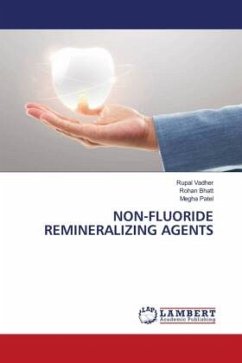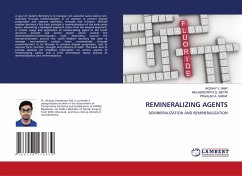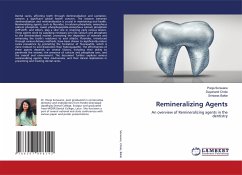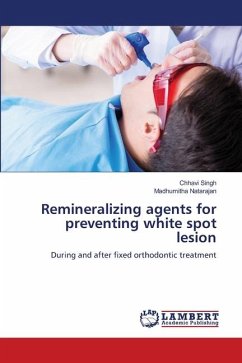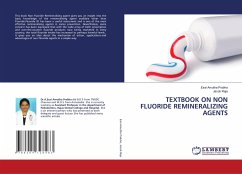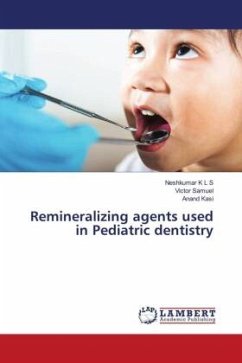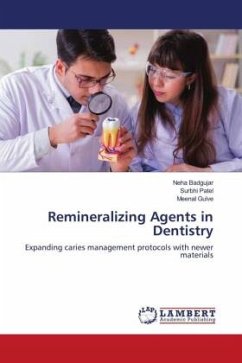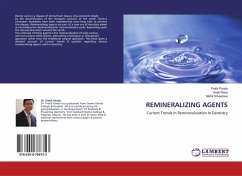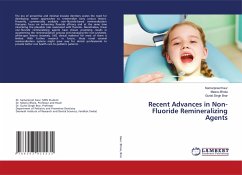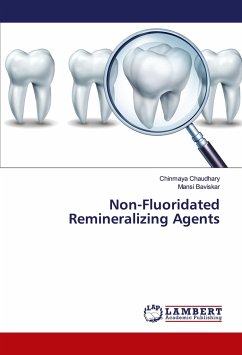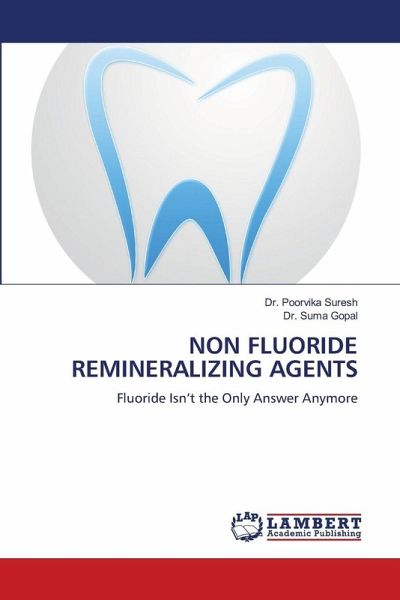
NON FLUORIDE REMINERALIZING AGENTS
Fluoride Isn't the Only Answer Anymore
Versandkostenfrei!
Versandfertig in 6-10 Tagen
40,99 €
inkl. MwSt.

PAYBACK Punkte
20 °P sammeln!
The management of early enamel caries has traditionally relied on fluoride-based therapies to enhance remineralization and inhibit demineralization. However, concerns regarding fluorosis, toxicity in pediatric populations, and growing interest in biocompatible alternatives have driven the development of non-fluoride remineralizing agents. These include calcium phosphate-based systems (such as casein phosphopeptide-amorphous calcium phosphate [CPP-ACP] and functionalized tricalcium phosphate), bioactive glass, nano-hydroxyapatite, and peptide-based technologies. These agents aim to mimic or sup...
The management of early enamel caries has traditionally relied on fluoride-based therapies to enhance remineralization and inhibit demineralization. However, concerns regarding fluorosis, toxicity in pediatric populations, and growing interest in biocompatible alternatives have driven the development of non-fluoride remineralizing agents. These include calcium phosphate-based systems (such as casein phosphopeptide-amorphous calcium phosphate [CPP-ACP] and functionalized tricalcium phosphate), bioactive glass, nano-hydroxyapatite, and peptide-based technologies. These agents aim to mimic or support natural enamel repair mechanisms by delivering bioavailable calcium and phosphate ions directly to demineralized enamel surfaces. This review explores the mechanisms of action, comparative efficacy, and clinical potential of non-fluoride agents, highlighting their role in minimally invasive dentistry and preventive care. Emerging evidence suggests that these alternatives may offer comparable, and in some cases superior, outcomes to fluoride, marking a promising shift in caries management protocols.



